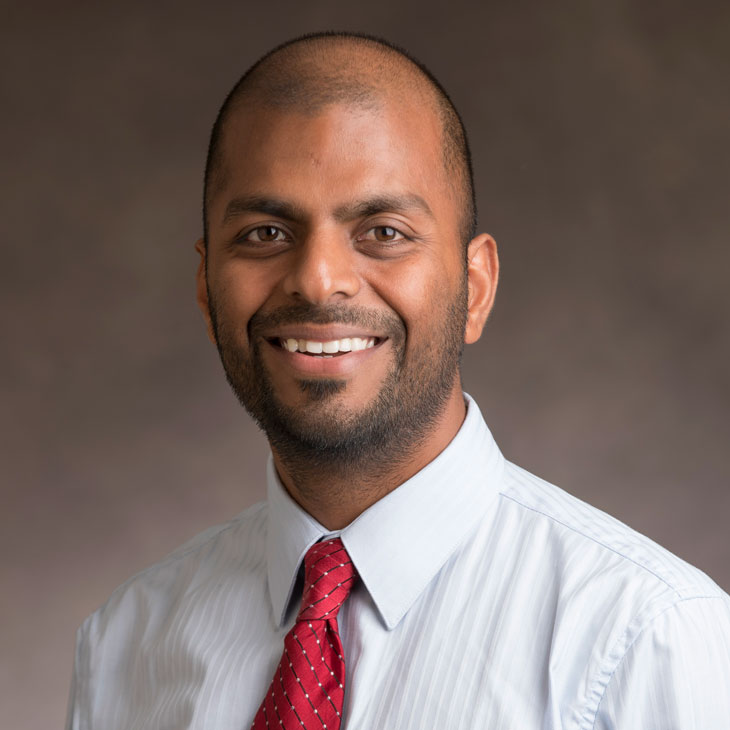
Subramanian Learns to “Think Again”
Tuesday, August 3, 2021
Madhan Subramanian, BvSc, Ph.D., recently participated in the University of California-Davis National Veterinary Entrepreneurship Academy.
Subramanian, an assistant professor in the Department of Physiological Sciences at Oklahoma State University’s College of Veterinary Medicine, received a full scholarship to the four-day virtual event where he learned to think differently when it comes to his research.
“As a scientist, your thought process is very different from that of an entrepreneur,” Subramanian said. “If you are going to bring your idea to clinical application, the main thing you have to do is change your thought process. It has to start from the very basic level of how you design your experiment all the way to how to market it to the public. We did a number of small exercises every day to learn how a business person or a pharmaceutical industry is thinking when bringing out a drug or a device. That was very eye opening for me because I always think from the point of trying to understand exactly what’s happening in the body. That’s the basic science. This is a very different area that I received insight into.”
Subramanian said that the academy was very well organized with speakers who had experience running their own companies and people from the patent office.
“It was a lot of information to take in within the four days,” Subramanian said. “Right now I don’t have anything written up for filing a patent. But one or two years down the road, I can go back and refresh myself on what are the things that I need to keep in mind to file a patent. The directions were easy and not complicated.”
While Subramanian’s lab isn’t yet ready to take his work to the marketplace, he has started the discussions with his team.
“I shared the knowledge I gained at this academy with my graduate students working in my lab,” Subramanian said. “I told them if we are going to continue working this way, we will be able to do good science, but the clinical application of it is going to take years down the road and we need to start thinking differently or, like the book we used said, ‘think again.’ Once I told them I was open to their inputs on our work and to start thinking more like how a company would think, they were coming up with all sorts of different ideas. Can you get some biomarkers to detect somebody who may become obese or diabetic at a later stage? From our research, what kind of biomarkers can we use? It is one thing to become obese and treat it; it is another thing to prevent it.
“One of the other things I learned that is very important is that you have to collaborate across different departments away from your college. It will be likely that they can bring a completely new perspective to your research. We have been collaborating but usually with somebody in the same field. For example, I have been collaborating with an investigator at OU. He’s looking at the heart and I’m looking at the brain but in the same disease. But I have never collaborated with biomedical engineers, computer engineers or artificial intelligence engineers. So when an engineer sees our research study, what would he think? What would his approach to combat obesity be with the data we already have? Maybe someone working in artificial intelligence can help us determine what makes someone purchase a high calorie food in the supermarket instead of a healthy vegetable? What predisposes them to do that? All these possibilities exist if we just think again (as mentioned in the book by Adam Grant). I am very excited about the future.”
Subramanian’s lab primarily focuses on obesity and aging related diseases, which are risk factors for developing a number of diseases such as heart diseases and neurodegenerative diseases.
